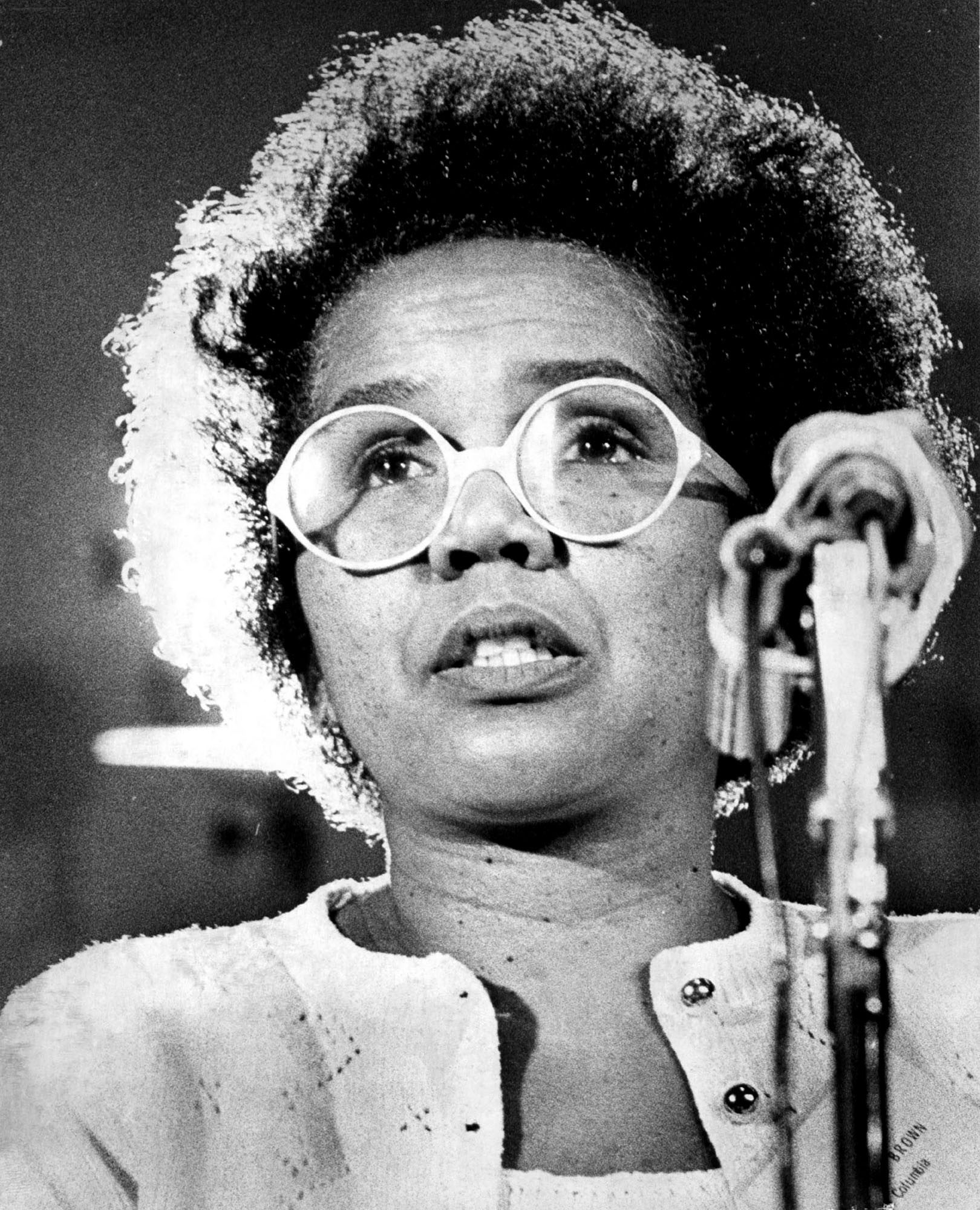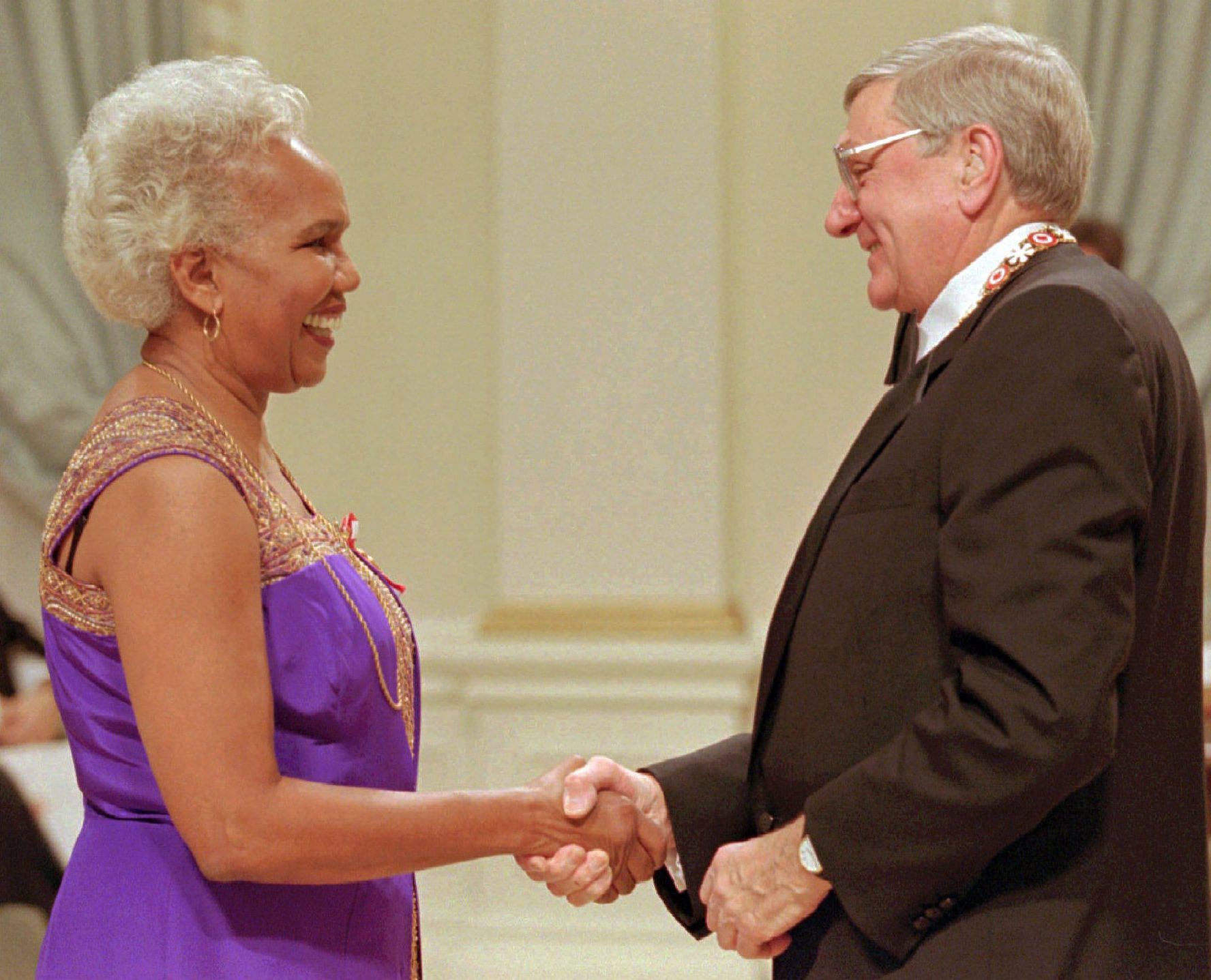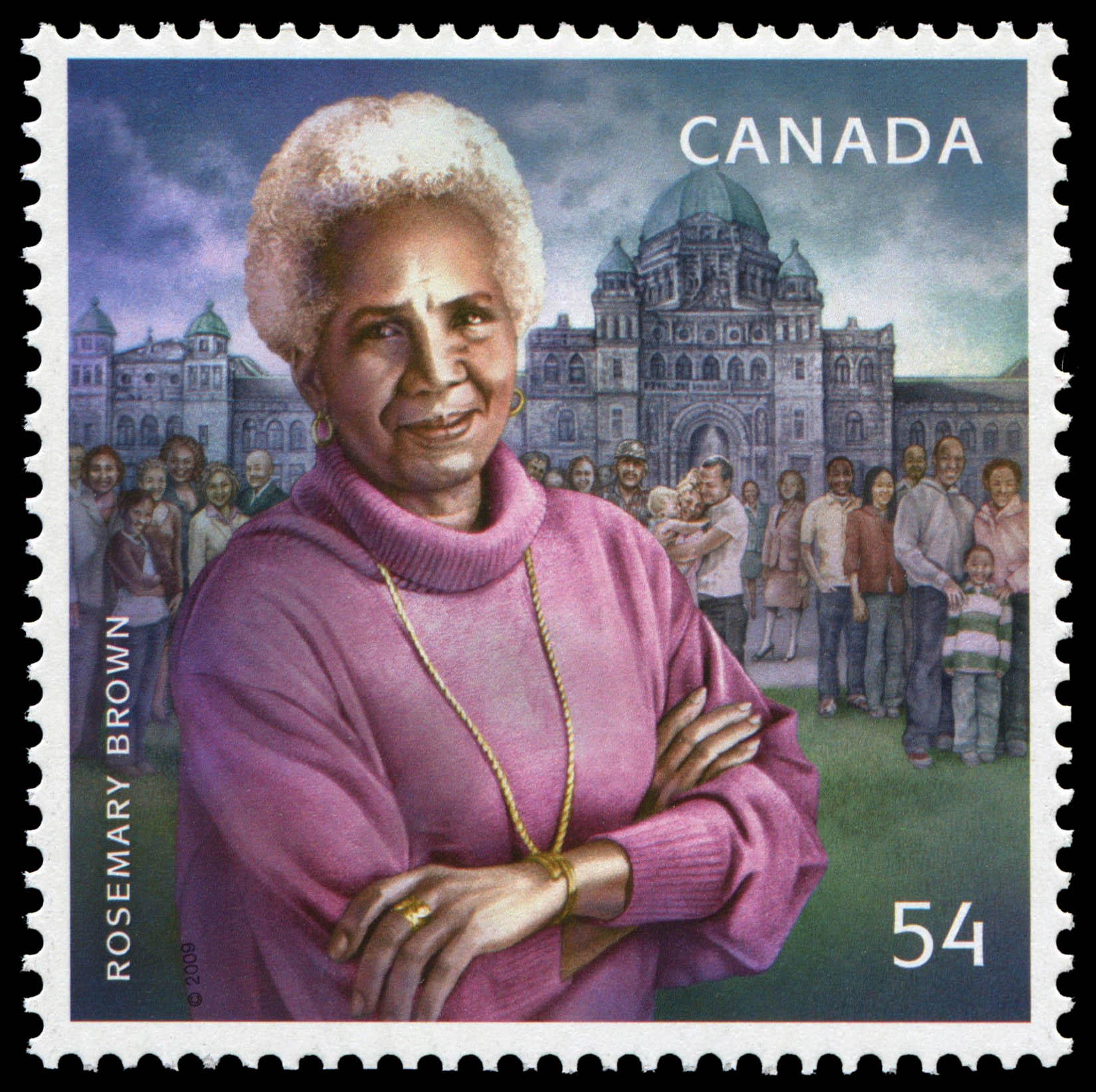
Early Life and Education
Rosemary Brown was born in Jamaica to a politically minded family. She immigrated to Canada in 1951 to study social work at McGill University (BA) and the University of British Columbia (Masters of Social Work). As a young student, Brown encountered both sexism and racism first-hand when applying for housing or summer jobs, or simply fitting into university life.
Advocacy and Activism
Following graduation, Rosemary Brown became involved with two social groups that would shape her political mindset, the British Columbia Association for the Advancement of Coloured People and Voice of Women. She also worked briefly with the Children's Aid Society and as a counsellor at Simon Fraser University. Brown was often a panelist on the national television series People in Conflict.
During the turbulence of the 1960s, Brown found renewed purpose in her role as a political advocate against both racism and sexism. At the time, traditional roles of race and gender were being challenged in Canadian politics. As a Black woman, Brown was qualified to speak for both groups. She brought that level of awareness to her role as Ombudswoman and founding member of the Vancouver Status of Women Council (VSW). (See also Council on the Status of Women.)
Political Achievements
In 1972, Rosemary Brown entered provincial politics as a New Democratic Party (NDP) candidate. She was encouraged to run by fellow members of the Vancouver Status of Women Council. When, on 30 August, she won her seat in the riding of Vancouver-Burrard, Brown became the first Black woman to sit in the Legislative Assembly of British Columbia. During her 14 years as MLA, Brown created a committee to remove sexism in British Columbia's educational material. Among her many other accomplishments, she played an important role in forming the Berger Commission on the Family. In 1975, she ran for leadership of the federal NDP. With the slogan "Brown is Beautiful," she broke colour barriers in the federal arena when she ran a close second to Ed Broadbent, ahead of three other candidates.
After Politics
Brown retired from the provincial legislature in 1988 and turned her attention to international advocacy. She served three years as CEO of the advocacy group MATCH International Women's Fund and held additional positions thereafter. Brown was passionate about the role and organization. She travelled widely and gave many speeches, gaining support for overseas projects that promoted the political, economic and social advancement of women in developing countries.
Brown helped found the Canadian Women's Foundation, which launched in 1991. As a national nonprofit organization, it advocates for gender equality across the country.
In 1993, Brown was named chief commissioner of the Ontario Human Rights Commission, a position she held until 1996, all the while continuing her work with MATCH. (See also Canadian Human Rights Commission.)
Awards and Recognition

Brown received many national and international distinctions in recognition of her exceptional life of public service. This included a total of 15 honorary doctorates from Canadian universities, the Order of British Columbia (1995), the Order of Canada (Officer, 1996), and in 1973 the United Nations' Human Rights Fellowship. Brown's life, dedicated to breaking down traditional barriers against both women and Black persons in Canada, was documented in her autobiography Being Brown: A Very Public Life. On 2 February 2009, Canada Post Corporation issued a commemorative stamp that shows Brown standing before the B.C. Legislative Building.

In February 2009, Canada Post Corporation issued a commemorative stamp showing Rosemary Brown standing before the B.C. Legislative Building.

 Share on Facebook
Share on Facebook Share on X
Share on X Share by Email
Share by Email Share on Google Classroom
Share on Google Classroom



